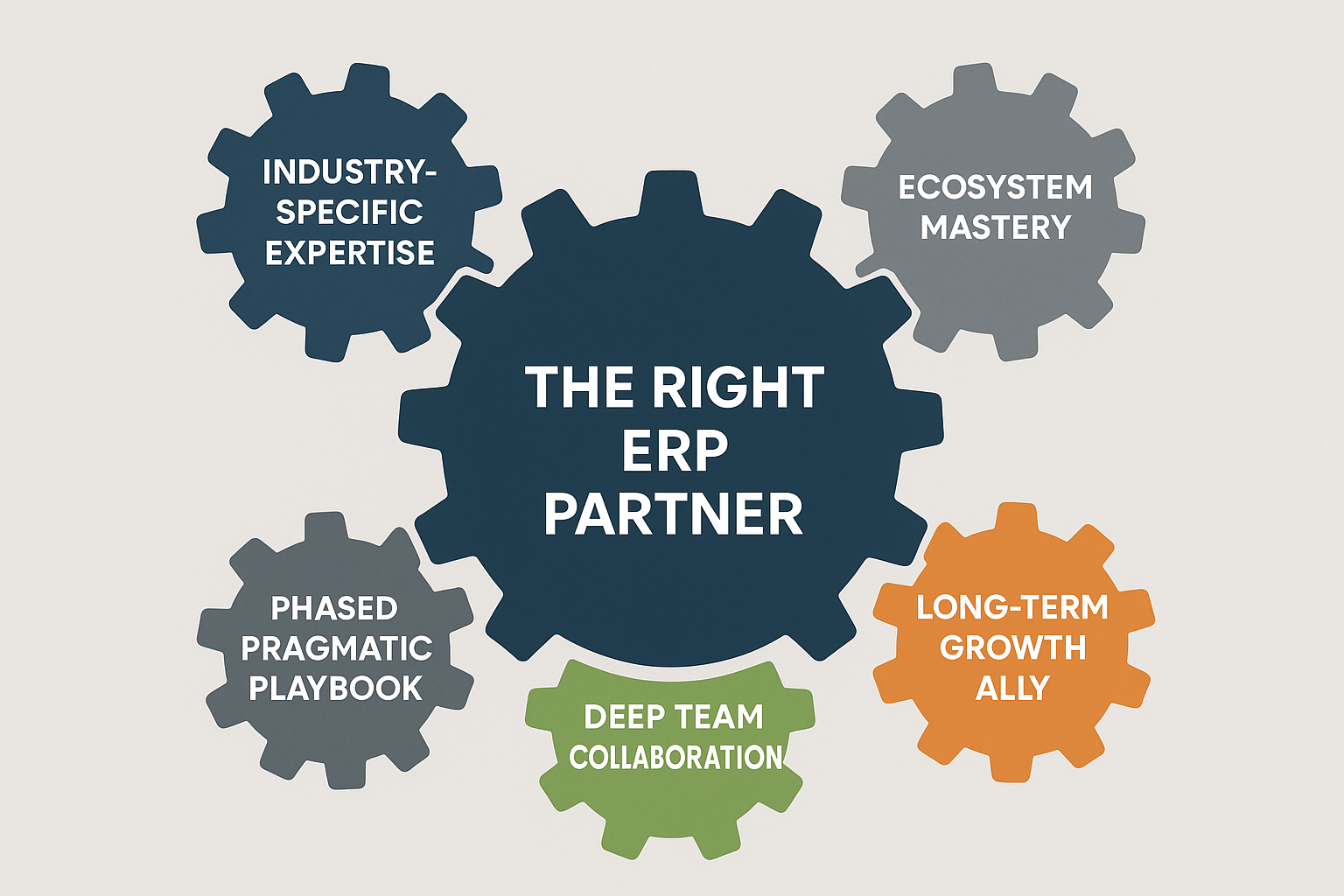The Secret to ERP Success Isn’t Just the Software — It’s Your Implementation Partner

Whether you’re deploying on a cloud-native platform or within a major ERP ecosystem, the right implementation partner makes the difference.
At SBA Insights, we often observe organizations spending months choosing the “perfect” ERP — be it Microsoft Dynamics 365 Business Central, NetSuite or another solution. However, the real challenge starts during implementation, because software on its own is only potential. What transforms that potential into performance is your implementation partner — the team that activates the system, aligns it with your business, and drives meaningful value.
Use this checklist to ensure you’re selecting the right ERP implementation partner.
1. They Understand Your Industry
A competent partner is a must, but a truly valuable one understands your industry’s workflows, regulatory demands, performance priorities, and competitive landscape. Experts agree that industry-specific experience significantly improves ERP outcomes.
2. They Understand the Integrated Technology Landscape
Modern ERPs don’t run in isolation. They sit at the heart of a connected digital landscape — finance, operations, manufacturing, CRM, e-commerce, analytics. As one authority puts it: “System integration … how easily can existing data be migrated … does the ERP integrate with other business systems?” Your partner should connect the ERP to your tools and processes to avoid silos and drive user adoption.
3. They Deliver Through Structured, Phased Implementation
Large, all-at-once go-lives sound ambitious but often increase risk. The most effective ERP partners use a phased delivery model — beginning with a Minimum Viable Product (MVP) or pilot rollout. This approach drives early value, strong adoption, and scalability.
4. They Prioritize Change Management and User Adoption
A strong implementation partner embeds change management into every stage — communicating the “why,” training users effectively, and preparing teams for new workflows. They help leadership drive adoption through stakeholder alignment, clear communication, and hands-on transition support.
5. They Support You Beyond Implementation
With your business constantly evolving, a credible partner remains engaged after go-live — supporting ongoing enhancements, system optimization, training and adaptation as your priorities shift. Look for service level agreements (SLAs), planned upgrade paths, and a long-term partnership model, not a one-and-done implementation.
At SBA Insights, we view ERP implementation as the beginning of a continuous journey, not a one-time project. We believe checklists like this empower businesses to identify the right strategic partner— and we hold ourselves to the same standards.



